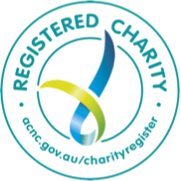Overview
- Home
- Abuse Prevention
- Overview
ARAS Abuse Prevention advocacy assists community-living older people who are experiencing or at risk of abuse from family or friends. The abuse might be physical, psychological, financial, sexual or neglect.
An advocate can help you or an older person you know to understand and exercise your right to live free from elder abuse and to safeguard your future.
There Is No Excuse for Abuse.
An ARAS advocate can support you if you are:
- Over 65 (or over 50 if you an Aboriginal person) and at risk of, or experiencing abuse from someone with whom you are in a relationship of trust, such as family or friends.
- An older person's nominated representative.
Click here to find out how an ARAS advocate can support you or an older person you know.
Abuse Prevention advocates can help you by:
- Providing information about your rights
- Discussing options
- Supporting you to implement strategies to reduce and/or stop the abuse.
ARAS raises awareness about elder abuse by:
- Providing guest speakers to community and seniors groups.
- Conducting education sessions for service providers, TAFE and University students, and Allied Health professionals.
Contact
Aged Rights Advocacy Service Inc.
-
Location:
175 Fullarton Road
Dulwich SA 5065 -
Mailing Address:
175 Fullarton Road
Dulwich SA 5065 - Phone: (08) 8232 5377
- Free Call: 1800 700 600 Aged Care Advocacy Line (toll free)
- Fax: (08) 8232 1794
- Email Address: aras@agedrights.asn.au
Acknowledgement of Country
Aged Rights Advocacy Service acknowledges the traditional owners of our country and pays respect to Elders past and present. We recognise and respect their cultural heritage, beliefs and relationship with their country.
Please be aware that this site may contain the names and/or images of deceased Aboriginal people. ARAS acknowledges that to some Aboriginal communities, it is distressing to show images and mention names of people who have died.
© 2017 - 2026 Aged Rights Advocacy Service (ARAS)



